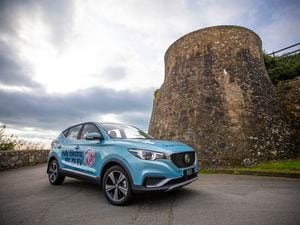Ditching the diesels
South KOREAN carmaker Kia is to drop the diesel models of its Rio and Venga.

The move comes after a drop in sales and the manufacturer’s desire to streamline its model line-up.
Kia said falling demand for both vehicles, coupled with a desire to reduce the size of its range, had prompted the move. Petrol versions of both Rio and Venga will remain on sale.
Kia said that the diesel variants would be sold until stock runs out.
A spokesman explained: ‘As part of our ongoing commitment to maintain a simple, effective and easily-understood model range, we have taken the decision to end diesel-engine sales of Rio and Venga in due course.
‘We continue to offer, support and maintain existing diesel-engine versions of these vehicles and there are still models in stock. These will remain available to customers but it is clear to us that the focus for the future in these two categories should be on petrol.
‘Both versions have seen falling demand in recent years and market trends in these segments show that concentrating on modern petrol units is the way forward.
This is not a move that in any way diminishes our commitment to clean, efficient diesel engines that will meet and exceed planned legislation to reduce levels of emissions.
‘Indeed, Kia will be introducing new diesel engines in the future that will continue to provide appropriate choices for UK motorists.’
Despite the dwindling popularity of the two models mentioned, Kia recorded a 4.3 per cent increase in the number of UK new car registrations in 2017.
And the firm increased its market share in the UK in 2017 to 3.67 per cent, up from 3.32 per cent in 2016, with almost half of its UK sales attributed to its Sportage and Sorento SUVs.
The Rio has been in production since 2000 and the brand brought out its fourth-generation model at the end of last year. The Venga was introduced to the Kia range in 2009 and a face-lifted model was introduced in 2015.





